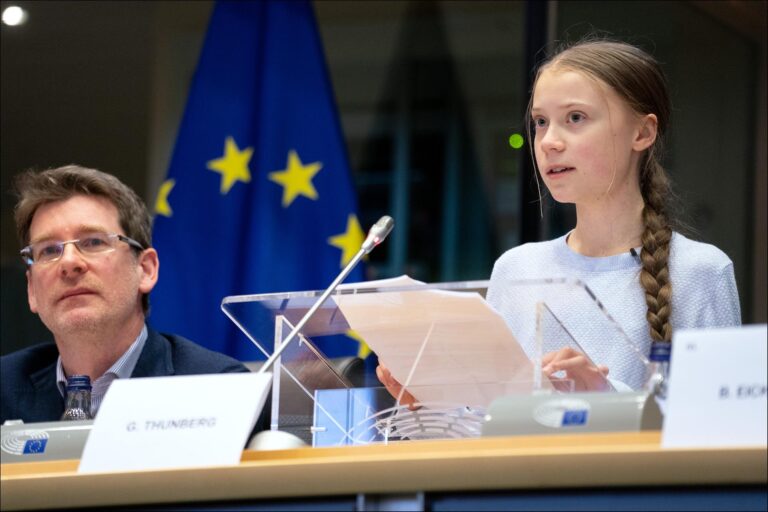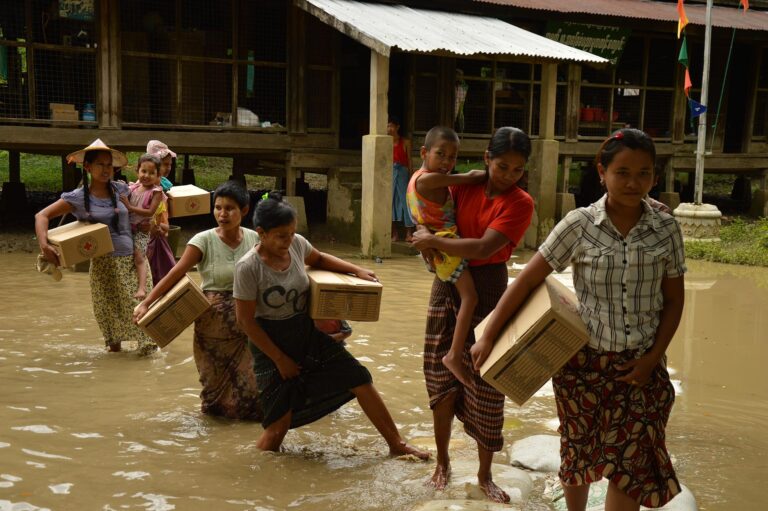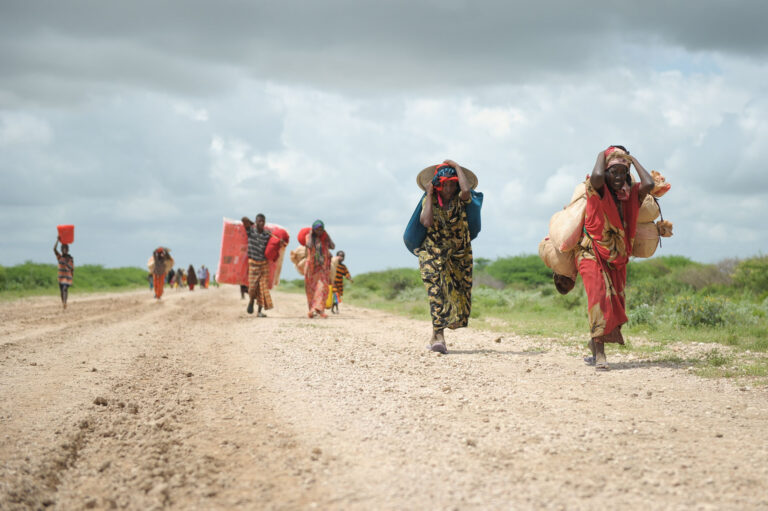The right to participate in public affairs in combatting climate change is critical.
The right to participate in public affairs in combatting climate change is critical.
As Ian Fry, the first special rapporteur on human rights in the context of climate change, has stressed, “the voices of those most affected must be heard“ in local, national, and international discussions about climate change.
In article 4 of the UNFCCC, the parties commit to promote and facilitate, within their respective capacities, “public participation in addressing climate change and its effects and developing adequate responses.” Similarly, the Paris Agreement states that:
Parties shall cooperate in taking measures, as appropriate, to enhance climate change education, training, public awareness, public participation and public access to information, recognizing the importance of these steps with respect to enhancing actions under this Agreement.
The Glasgow Climate Pact, agreed in November 2021 at the 26th Conference of Parties under the UNFCCC, highlights the need to ensure participation of potentially underrepresented groups, including youth, Indigenous Peoples and local communities, women, and observer organizations such as NGOs.
According to David Boyd, the U.N. special rapporteur on human rights and the environment, states must. “Ensure an inclusive, equitable and gender-based approach to public participation in all climate-related actions, with a particular emphasis on empowering the most affected populations, namely women, children, young people, Indigenous peoples and local communities, persons living in poverty, persons with disabilities older persons, migrants, displaced people, and other potentially at-risk communities.”
The right to participate in public affairs is protected in article 25 of the ICCPR. That right includes not only the right to vote and to run for public office, but also the right to participate through public debate and dialogue with elected representatives. Guidelines issued by the Office of the High Commissioner for Human Rights stress that stakeholders should be able to participate before, during, and after any decision-making process that may affect their rights.
Special rules are increasingly applicable where the rights of Indigenous peoples may be affected. ILO Convention 169, which was adopted in 1989 and went into force in 1991, states that Indigenous Peoples “shall have the right to decide their own priorities for the process of development as it affects their lives, beliefs, institutions and spiritual wellbeing and the lands they occupy or otherwise use, and to exercise control, to the extent possible, over their own economic, social, and cultural development. In addition, they shall participate in the formulation, implementation and evaluation of plans and programmes for national and regional development which may affect them directly.” The ILO Convention, which is legally binding, has been ratified by 24 countries to date.
Adopted by the UN General Assembly in 2007, the UN Declaration on the Rights of Indigenous Peoples provides that states shall consult and cooperate with Indigenous peoples “to obtain their free, prior and informed consent” before adopting measures that may affect them. The Declaration has the support of all but 11 countries, and is increasingly treated as a mandatory minimum standard.
Regional Treaties
There are at least two specific regional treaties on the issue of the right to participation. The Convention on Access to Information, Public Participation in Decision-Making and Access to Justice in Environmental Matters (the “Aarhus Convention”) is open to signature by countries within the Economic Commission of Europe, economic integration bodies such as the European Union, and, “with the consent of the parties,” to countries from outside the ECE. The convention currently has 47 signatories. Each party to the convention agrees to “guarantee the rights of access to information, public participation in decision-making, and access to justice in environmental matters in accordance with the provisions of this Convention.”
On March 4, 2018, the Latin American and Caribbean region adopted the Regional Agreement on Access to Information, Public Participation and Justice in Environmental Matters in Latin America and the Caribbean (the “Escazú Agreeement”). The treaty entered into force on April 21, 2021. As of October 5, 2022, 25 countries in the region have signed the accord and 13 have already ratified it, becoming States Parties to the treaty
Photo Credit: Climate activist Greta Thunberg addresses the European Parliament. Participation in the fight against must include those most affected, including young people. Photo copyright: European Union 2020 – Source: EP (CC-BY-4.0).
More reading...
Climate change and the environmental degradation it causes lead to the violation of...
In an effort to stave off climate catastrophe, many countries have made commitments...
The Green Climate Fund (GCF) is a multilaterally-funded financial mechanism created in 2010...






